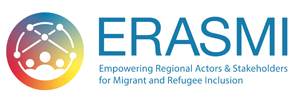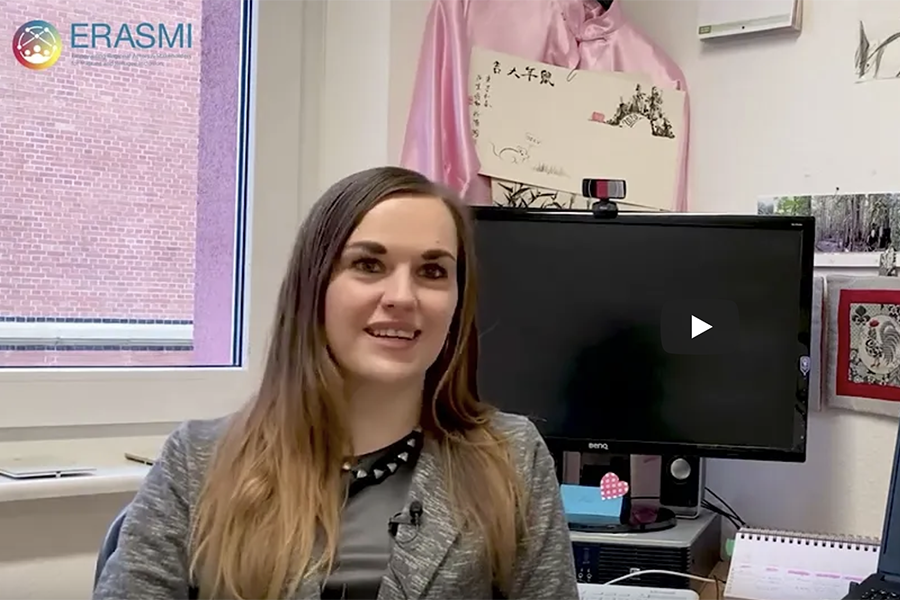The Technology and Startup Sector as an Opportunity for Refugees and Immigrants
The labor market inclusion of refugees seems to be a sensible step towards participation and integration. On the one hand, this is due to the linguistic and cultural exchange with work colleagues, and on the other hand, it is due to the possibility of shaping and securing one’s own financial situation and prospects of remaining in the country through wages. The theory is promising; after all, refugees have all kinds of professional qualifications. However, in Germany, formal qualifications are often required for qualified entry into a profession.
It is obvious that refugees can be educated in many different ways. The first question is what these professional certifications mean for the labor market in Germany. And secondly, what happens when refugees can no longer prove that they have these formal qualifications (documents are destroyed, lost during fleeing)? While the BAMF has introduced an application procedure for the recognition of a professional qualification, [1] and the first question can thus be answered, the second question remains open as to how recognition is to take place without a formal qualification, and thus how qualified entry into a profession is to take place.
It would be possible to integrate refugees into the training programs. In any case, this would make up for a formal qualification. However, on the one hand, this can represent a downgrading of the qualified person, and on the other hand, the training path costs time. After all, the usual training period is three years. Here, there is a need for alternative qualification paths. Looking at the IT sector, one key barrier to qualification can often be overcome: a rigid fixation on formal qualifications linked to a certain level of language. Digital coding schools, for example, would pave the way for teaching high-demand skills for the IT sector in a relatively short time. Concepts have already been implemented here. [2] In some cases, there is a link with a language course that focuses only on qualifications in the IT sector and can be promoted as a job placement measure. [3] In this way, a rapid upskilling of people can be achieved. In addition, this digital form of teaching offers flexible handling of the learning material and additional networking opportunities. These high-demand skills would also be suitable for jobs in the IT sector. In particular, young and tech-savvy people could achieve a quick connection in an internationally relevant field of work in this way.
In Austria, 90% of the participants in a comparable program were able to successfully enter the job market between 2017 and 2018.[4]
And even if this doesn’t happen all the time – after all, people have very diverse and individual skills and interests – there are still some indirect benefits. Coding schools can provide a sense of purpose and satisfaction to young people who are maturing and living within the overall flight There is a certain value in allowing them to decide for themselves what they want to learn, which leads to a sense of self-reliance and independence. Not everybody will eventually use the skills taught to become a coder, but some will be motivated and inspired to start their own business or solve problems in their community. Starting a business, in particular, would not be out of the question with the skills learned. After all, in 2020, 31.8% of all startups in Germany were in the information and communications technology industry.[5]
A very special example of what a coding school has looked like in the past, and what obstacles and, above all, successes have been remarkable, could also be seen most recently at the Gihembe Refugee Camp in Rwanda.[6]
[1] More information: https://www.bamf.de/DE/Themen/Integration/ZugewanderteTeilnehmende/AnerkennungBerufsabschluesse/anerkennungberufsabschluesse-node.html ; www.anerkennung-in-deutschland.de , “Hotline Working and Living in Germany” at +49 30-1815-1111.
[2] Examples of concepts already implemented https://wecodeit.academy/ ; https://www.newaustriancodingschool.at .
[3] Example of linked language course: https://drheuer.de/m.php?sid=98 .
[4] S., S. (2018, August 30). refugees{code} – Programmierschule für Flüchtlinge und Arbeitslose | Bundesland.bz. www.bundesland.bz. http://www.bundesland.bz/news/refugeescode-programmierschule-fuer-fluechtlinge-und-arbeitslose .
[5] Kollmann, T., Jung, P. B., Kleine-Stegemann, L., Ataee, J., & de Cruppe, K. (2020). Deutscher Startup Monitor 2020: Innovation statt Krise. In Startup Monitor on page 23. https://doi.org/10.17185/duepublico/72962 .
[6] UNHCR Innovation Service. (2020, June 29). The refugee coding school trend: lessons and reflections. Medium. https://medium.com/unhcr-innovation-service/the-refugee-coding-school-trend-lessons-and-reflections-5b6ee8168bc .





